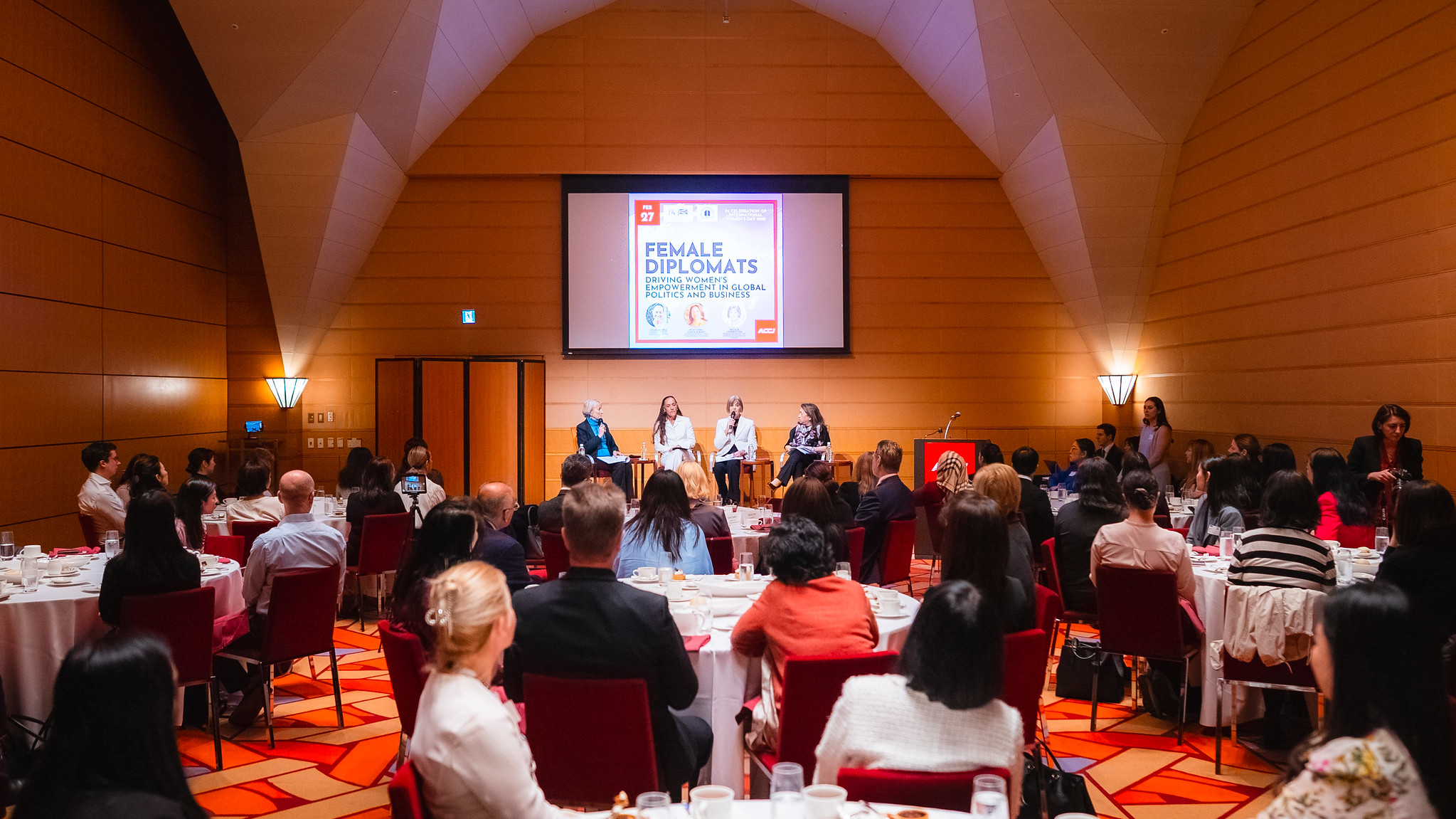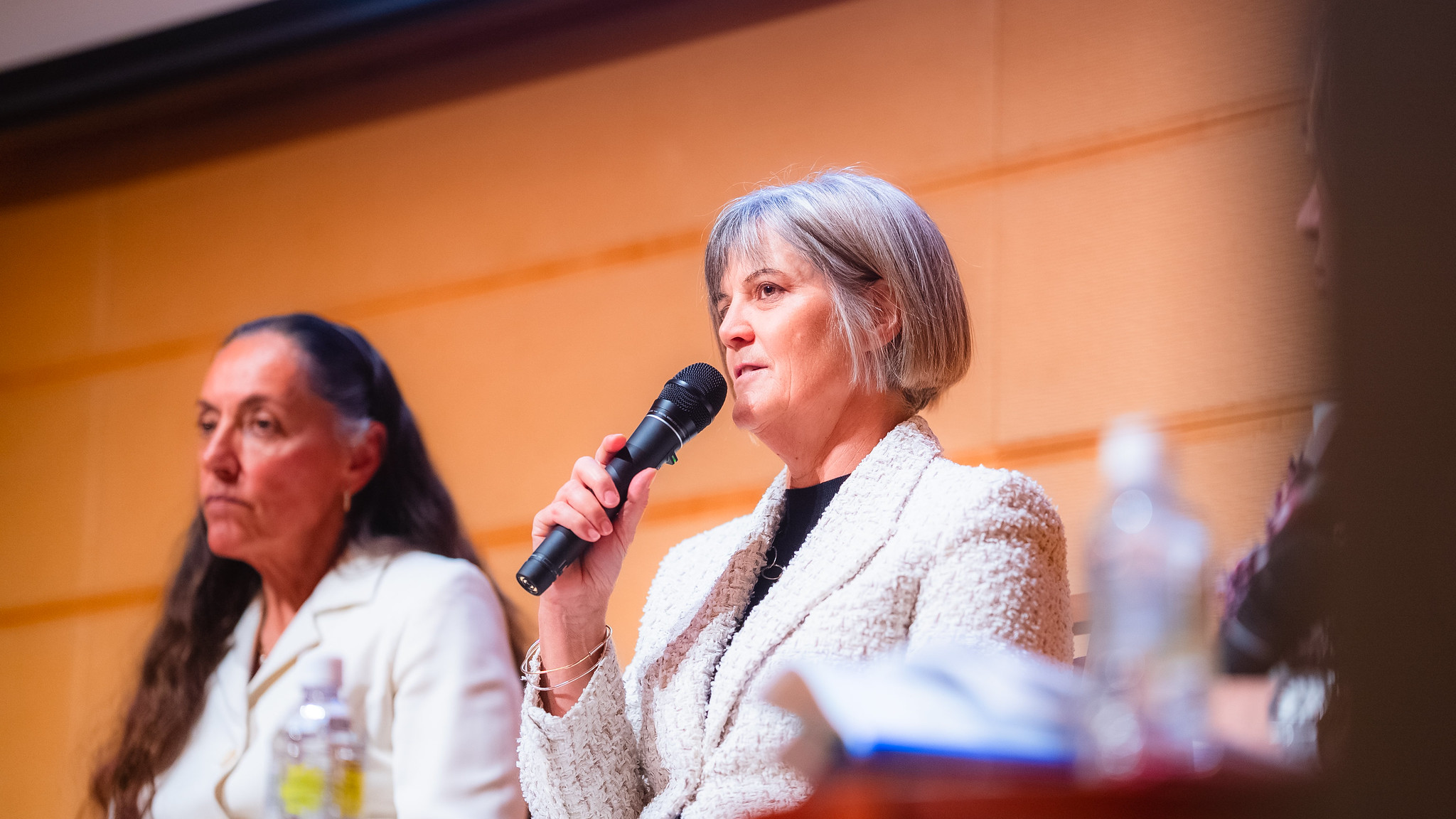Female Diplomats Driving Women's Empowerment in Global Politics & Business
A panel comprising female ambassadors from the embassies of Mexico, the Philippines and the United Kingdom came together in celebration of International Women’s Day 2025 at an event hosted by the American Chamber of Commerce in Japan, Philippine Chamber of Commerce and Industry Japan and British Chamber of Commerce in Japan in late February.
Held under the global theme of #AccelerateAction, the event invited the panellists—HE Melba Pria, Mexican Ambassador to Japan; HE Mylene J. Garcia-Albano, Philippine Ambassador to Japan; and HE Julia Longbottom, British Ambassador to Japan—to share their first-hand experiences and address critical issues related to women’s empowerment and inclusion in international affairs.
Breaking new ground
Opening the discussion, moderator Elizabeth Handover congratulated each panellist for being the first woman to hold their respective role and asked what had enabled their success so far.
“I stand on the shoulders of many women who came before me,” said Ambassador Pria, noting that she benefited from female role models in senior government positions when she was growing up. “I am the first [female Mexican Ambassador to Japan] but I hope not the only one. We hope that one day having a woman ambassador is not something unusual.”
Ambassador Longbottom explained that until the mid-1970s, female diplomats in the UK were required to resign on getting married. As a result, most women in senior positions in the foreign office were unmarried even when she joined a decade later. Still, she recalled that “change was afoot,” noting that “all the rules, standards and requirements were in place” for both men and women to excel in their careers.
“I feel fortunate not to have had barriers, but the pathways were not yet there … in my generation the main limitation is you can’t imagine doing a very senior job because you haven’t seen a woman do it before,” she said.
In addition to role models, which include two female presidents and two female vice-presidents, Ambassador Garcia-Albano attributed much of the Philippines’ progress in female participation in the workforce to the country’s signing of the Magna Carta of Women, a comprehensive women’s human rights law, in 2009.
Fostering confidence
Asked how women in politics and business can create a more inclusive global economy, Ambassador Pria said mentoring is vital. “I believe women need an extra boost,” she said. “The reality of the world is that there’s still a patriarchal mindset in society. Women have had many centuries of not believing in themselves. If someone needs a boost, give it to them.”
Ambassador Garcia-Albano agreed that supporting each other and looking for role models is important for women’s motivation and confidence. “There are women in the Philippines who are active in their community, raise children, run a business and get things going, but at times they can’t imagine going on to bigger things,” she said. “Seeing women in high positions helps empower them.”
Still, the government is trying to do more to promote female participation in business including by addressing some of the barriers women tend to face such as a lack of credit and difficulty navigating bureaucratic processes or digitalisation, she said.
For Ambassador Longbottom, an inclusive global economy means both women and men having “the opportunity to fulfil their potential.” She called on attendees to continue to update their image. “You’ve got to remind yourself that if you’ve been given a job, it’s because you’re the best person for that job. You need to take your seat and put yourself into those shoes,” she said, adding that it’s possible to “aim high.”
Reflecting on her journey, she recalled the significance of a former boss once suggesting that she could one day be ambassador to Japan. “I needed somebody to just point that out to me so I got my head around that possibility. What we can all do is tap that other person—woman or man, but often it’s a woman—and say ‘you could do this in the future’ so they can start imagining themselves in that role,” she said, adding that decision-making roles should be welcomed rather than feared: “It’s quite nice to be the person who owns that responsibility.”

Proactive approaches
Considering lessons from Mexico, Ambassador Pria pointed to her country’s “feminist foreign policy” that calls for half of diplomats to be women. Progress is being made towards that goal, with more women than men sitting the entrance exam, but higher-level positions comprise only 35–40% women. A key factor in the drop is the job requirement to transfer to another country every 4–5 years, she said, adding that the government is “looking at the wellbeing of women diplomats” to help enrichen the experience of women in the role.
Ambassador Longbottom agreed that international roles presented challenges for women, particularly for those with a family. She recalled her experience in pioneering job sharing with another mother of young children during her placement in the Netherlands. “We split the week, for two years, both working as Counsellor for the EU and Political Relations,” she said, pointing out that they demonstrated this kind of flexible working was possible.
“Sometimes you need to ask for what you need because your organisation or your boss might not think of it,” she added.
Today, 41.9% of British ambassadors are women, thanks to efforts to produce a “pipeline of women to apply for jobs,” namely “talking to women to understand who could do which job and to ensure they can apply and compete with their male counterparts.”
Finally, Ambassador Garcia-Albano shared some career advice, calling on attendees to “do the best where you are because you never know where what you do will lead you.” Furthermore, “try and help as many people as possible … because you don’t know the effect you can have on the lives of the people around you. It helped and encouraged me a lot—that’s what I’ve been doing,” she said.

